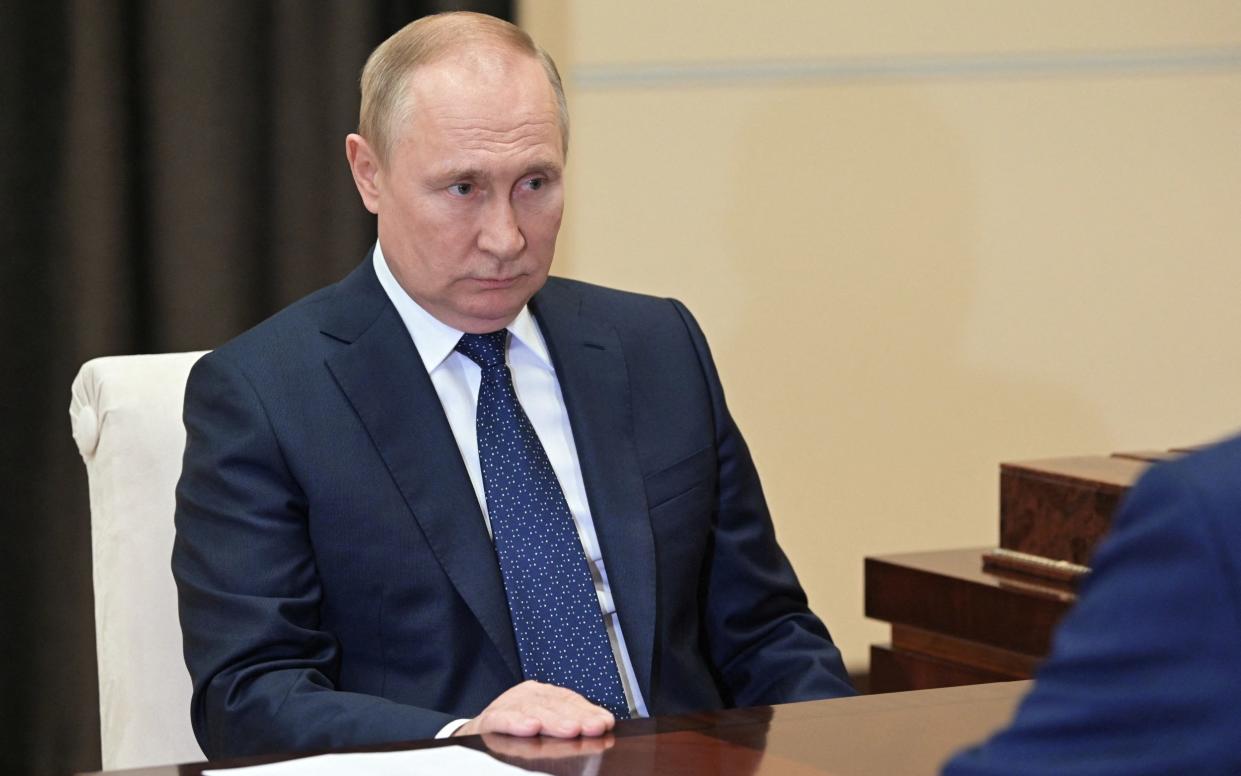Britain cuts out Putin as Russian energy imports drop to zero

UK imports of Russian fuels dropped to zero in June as Britain cut out Vladimir Putin’s energy supplies.
Imports of fuels, “a historically important commodity for trade with Russia” totalled £0.0bn by the end of the second quarter, the Office for National Statistics said.
Overall imports from Russia continued to fall, reaching the lowest on records going back 25 years.
It came as the UK’s trade deficit widened to a record £27.9bn as a result of inflationary pressures and surging fuel imports.
Britain has historically had sizeable Russian energy imports, which made up 4pc of gas, 9pc of oil and 27pc of coal used in the UK last year.
However, it has never been as dependent upon the Kremlin’s energy as many other European countries.
The UK and EU have united to introduce sanctions on Russian coal and oil, partial or full bans on which are set to kick in by the end of this year, and have both pledged to reduce reliance on Russian gas.
Despite flatlined direct import figures, it is likely Britain is continuing to import some Russian oil as part of “blended” products that mix crude from different sources.
Total UK imports rose by £14.3bn to £206.6bn in the second quarter, while exports rose £12.3bn to £178.6bn, according to the ONS. The deficit – the difference between imports and exports – was the widest since at least 1997.
The deficit across the first half of 2022 was the highest as a share of GDP for any consecutive quarters since at least 1955, according to Pantheon Macroeconomics. The figures lay bare how severe the commodity prices surge triggered by the invasion of Ukraine has been.
Samuel Tombs, chief UK economist at Pantheon, said “the worst is yet to come” for Britain’s trade balance amid soaring prices for energy and manufactured goods.
“All told, the trade data are grim, and will worsen further over the coming months, leaving sterling even more vulnerable than usual to any reduction in the willingness of overseas investors to supply the finance needed to sustain this excessive consumption,” he said.
ONS statisticians said the Q2 deficit would have narrowed to £22.6bn if adjusted for inflation. The deficit was equivalent to 4.5pc of nominal GDP, an improvement from 5.4pc in the first quarter.
Imports of fuels from the EU rose by £0.4bn during June, while those from beyond the bloc climbed £0.5bn, driven by increased imports of oil from the US and gas from Norway.
Goods exports fell 8pc in June alone, versus a 1pc fall in goods imports. Across the first half of the year, exports have fallen 2.1pc while imports are 8.8pc higher.
Exports to the EU increased, driven by a rise in fuel exports to £2.7bn. The UK re-exported a high volume of gas into the continent during June via pipelines to the Netherlands and Belgium, as European countries try to build fuel stocks ahead of the winter.
Early estimates found the UK’s trade in services surplus fell slightly, dropping by £0.5bn to £34.7bn over the quarter as an increase in imports outpaced rising exports.

 Yahoo Movies
Yahoo Movies 
